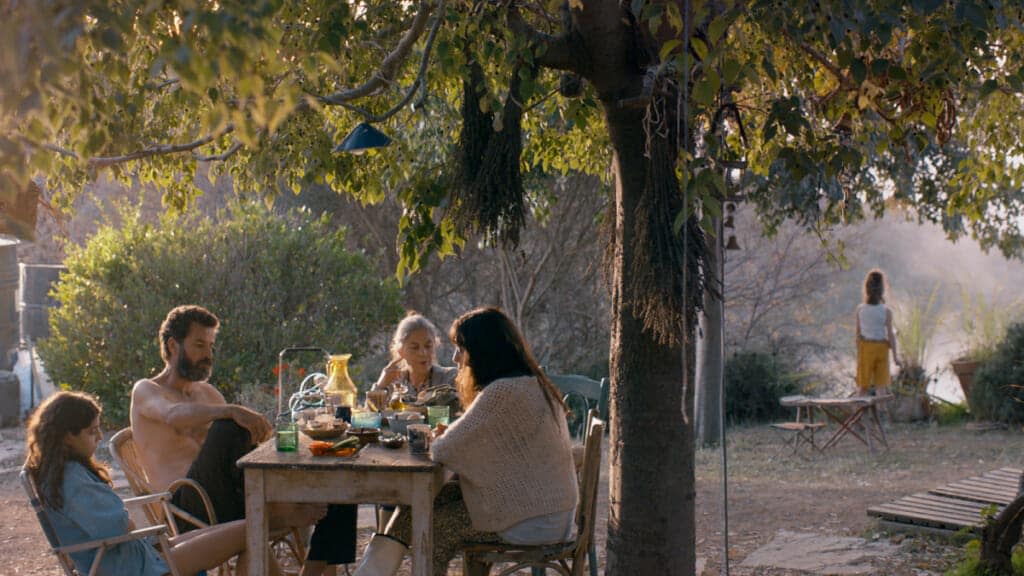‘Costa Brava, Lebanon’ Film Review: Family Drama Explores the Costs of Activism

- Oops!Something went wrong.Please try again later.
- Oops!Something went wrong.Please try again later.
This review of “Costa Brava, Lebanon” was first published July 14, 2022, before it opened in New York City.
Mounia Akl’s debut feature film “Costa Brava, Lebanon” is valiant filmmaking. Using the beauty of cinema to show the destruction of man’s cruelty to the environment is not just effective — it’s heartbreaking.
In a film landscape dominated by blockbusters, “Costa Brava, Lebanon” offers a reality check, reminding us that there are indeed concerns bigger than our own entertainment. It’s indie filmmaking at its most productive.
Set in Akl’s native Lebanon, whose political and environmental unrest helps drive the plot, “Costa Brava, Lebanon,” co-written with Clara Roquet (“10.000 Km”), draws us in with the charming Bardi family, who has gone off the grid. For eight years, husband and wife Walid (Saleh Bakri, “The Band’s Visit”) and Souraya (Oscar-nominated “Capernaum” director Nadine Labaki) have lived in the mountains with their two girls — Rim (twins Seana and Geana Restom) and Tala (Nadia Charbel), ages nine and 17 — and Walid’s mother Zeina (Liliane Chacar Khoury) who is nearing 80, growing their own food and breathing good air.
Also Read:
‘Capernaum’ Film Review: Lebanon’s Oscar Entry Unflinchingly Examines Childhood Poverty
That changes, however, when the trash and corruption they forced them out of Beirut literally lands on their doorstep. As the film progresses, the local landfill isn’t the only thing threatening their peace. Idealism, it turns out, also comes with a price.
One of the biggest rifts revealed is between Walid and Souraya. Compelled by her own activism as well as her love for Walid, Souraya chucked her popular-music career to give utopia a try. When she and Walid ditched Beirut for greener living, they already had one child, and Walid’s mother was in poor health. But the presence of other adults, especially those like Tarek (François Nour) — the government’s mouthpiece in their disrupted paradise who also happens to be a fan of Souraya’s music — tests the limits of isolation.
As Walid, championed by their younger child who has never known anything but their present home, vows to fight or at least to resist, Souraya wonders if that fight is still even worth the trouble. The same goes for Walid’s mother. For Tala, almost 18 and is drawn to Tarek, living apart from other young people, especially men, becomes increasingly unbearable. Complicating matters further, Walid’s sister Alia (Yumna Marawan), now an ex-pat in Colombia, shows up on their mother’s smartphone screen as a reminder that there are alternatives to their current reality.
Also Read:
15 Great Environmental Movies to Stream on Earth Day
Akl, whose short films have been acclaimed at Cannes and Sundance, brings us into this world with gorgeous subtlety. Her assured direction captures the promise of wanting change as well as the disappointment of not quite knowing how to achieve it. The cinematography by Joe Saade (“Joyland”) skillfully captures the juxtaposition of those two realities. Through his lens, we see the beauty that could be as well as the ugliness that presently exists.
Casting and directing actors might be Akl’s biggest triumph, however. As Walid, Bakri (son of iconic actor Mohammed Bakri and an Oscar-nominated filmmaker himself) hits all the right notes. Walid is a huge presence, oscillating between hero and villain. It is not hard to see how Souraya both loves him and also feels stifled by him. His relationship with his mother and younger daughter Rim is endearing and serves as a reminder of the good guy he is. By the same token, Walid’s refusal to entertain ideas other than his own show how overbearing and frustrating he can be as well. Even his faults, however, cannot obscure his love for his family.
Also Read:
Emmys 2022: Women Comprise Almost Half of All Directing Nominees
Labaki gives her own extremely nuanced as Souraya, ably maneuvering from supportive and frustrated wife to loving and exasperated mother, especially when it comes to Rim, whose rebelliousness Walid encourages. As the landfill brings new faces into their space, Souraya, like Tala and her mother-in-law, grows more restless with being cut off from the world.
Charbel imbues Tala with the angst and longing of a young woman just discovering her sexuality while also being pulled into womanhood. By not overdoing her performance, she keeps the character relatable and authentic. As Rim, twins Seana and Geana Restom just light up the screen; even when Rim is being mischievous, it’s hard not to be charmed.
Practicing what she preaches, Akl implemented a green production promoting sustainable practices such as recycling and carbon emissions reduction, a first for the Arab region. What emerges from “Costa Brava, Lebanon” is a principled film that confronts today’s environmental challenges in a very real-world way. By centering activists without romanticizing or simplifying their challenges, “Costa Brava, Lebanon” reaffirms cinema’s ability not just to reflect the times but also to stay in step with them.
“Costa Brava, Lebanon” opens Friday Los Angeles.

